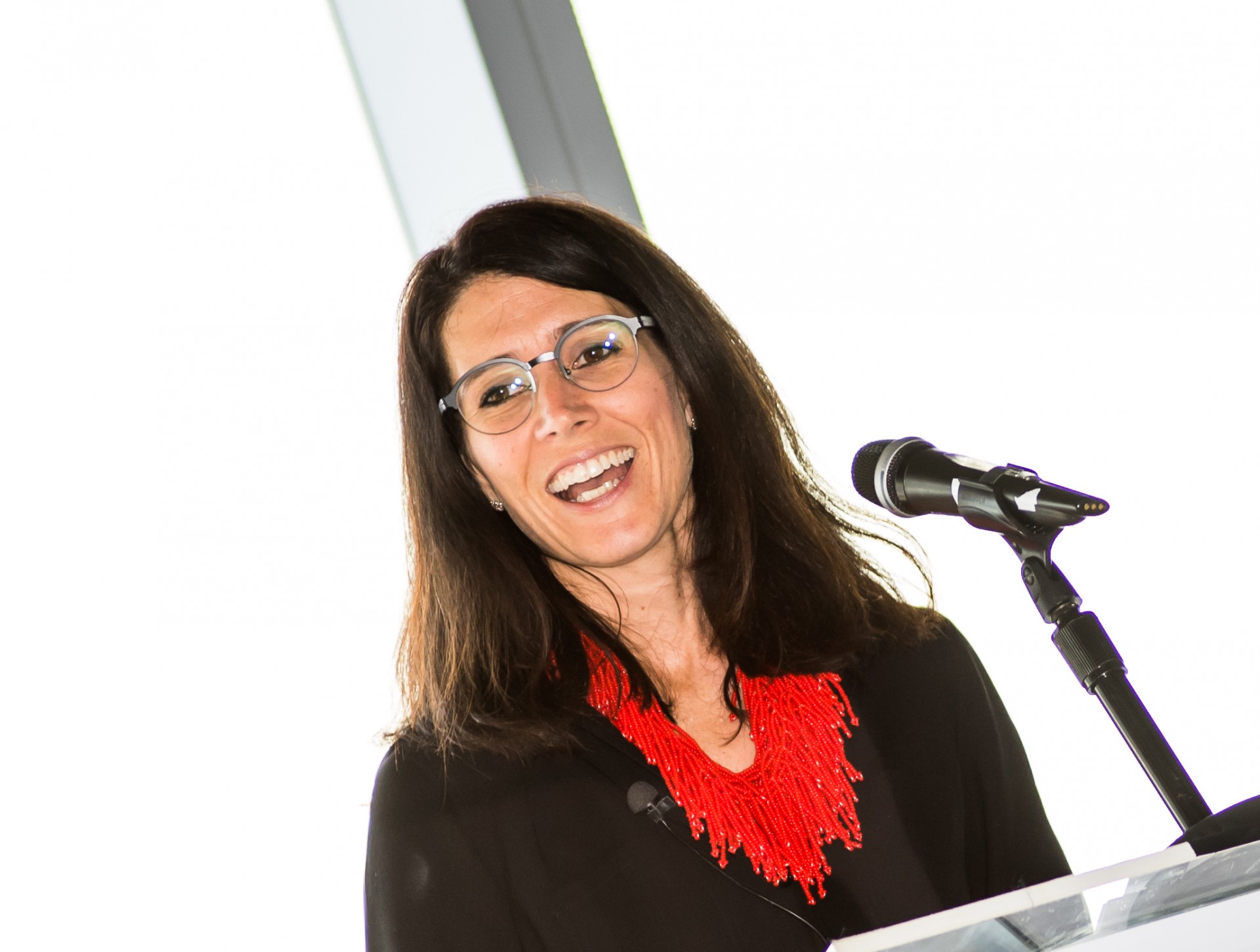15th & 16th Nov 2021
Online Events | Follow us on Twitter: #TROPICO2021
The registration for the event has closed.
The 2021 TROPICO Online Event celebrates the achievements of the project and offers the possibility to share insights stemming from 4,5 years of research, reflect on the TROPICO findings and provide an arena for joint discussion.
The event will cover a range of topics connected to the TROPICO research and its implications for improving collaboration in the digital era. How to make digitalisation work? How to involve citizens in policy design processes? How to assess the legitimacy and efficiency of collaborations? The contents of the sessions will be selected to be of interest for our diverse audience, including practitioners (policy-makers, civil servants, public managers), actors from the private sector and the civil society, and citizens. We will also explore the impact of the project in terms of research, presenting our main findings and identifying steps towards a research agenda, which will be relevant for academics and the scientific community.
The event will be held online and consist of five independent one-hour sessions. The sessions will be designed to engage participants and foster interaction between the speakers, the TROPICO researchers, and the audience. They will include a debate, an interactive workshop, roundtables, open discussions and experience-sharing, short research presentations, as well as offer social interaction and a lively, professionally moderated setting.
TROPICO Online Event 2021 - Overview
Day 1 - 15th November
10:30-11:30 (CET)
Central or decentralised organisation – how to make digitalisation work?
14:00-15:00 (CET)
Involving citizens in policy design processes
Day 2 - 16th November
10:00-11:00 (CET)
Involving the private sector in processes of public service innovation
11:00-12:00 (CET)
Assessing the efficiency and legitimacy of collaborations – what we know and what comes next
14:00-15:00 (CET)
Understanding the transformation of public administrations: research, achievements and perspectives
Day 1 - 15th November
10:30-11:30 (CET) - Central or decentralised organisation – how to make digitalisation work?
14:00-15:00 (CET) - Involving citizens in policy design processes
Day 2 - 16th November
10:00-11:00 (CET) - Involving the private sector in processes of public service innovation
11:00-12:00 (CET) - Assessing the efficiency and legitimacy of collaborations – what we know and what comes next
14:00-15:00 (CET) - Understanding the transformation of public administrations: research, achievements and perspectives
TROPICO Online Event 2021 - Programme
Session 1
-
Session 1: Central or decentralised organisation – how to make digitalisation work?
Over the last decades, digital technologies have become an integral part of our lives, and the pace of digitalisation processes is not slowing down. Quite the opposite, with every year digitalisation accelerates even more and its impact on different spheres of our lives increases.
Despite being widely discussed, this phenomenon brings numerous technological, ethical and organisational challenges that still need to be explored.
This session of the TROPICO Final Event will focus on contrasting approaches towards organising digitalisation by governments:
- Centralised (coordinated by one assigned actor, e.g., ministry or agency), and
- Decentralised (where different governmental units are in charge of different digitalisation-related processes).
In a debate with prominent government practitioners from 3 different countries, we will explore the pros and cons for both approaches, the role of collaboration in digitalisation, challenges and solutions related to this process, and the factors that can make digitalisation projects succeed (or fail).
-
10:30-10:35 (CET)

Introduction and welcome
Lisa Witter, Apolitical
Lisa Witter is the co-founder and executive chair of Apolitical, the global learning network used by public servants in 170+ countries. The tech company’s mission is to accelerate the transformation of government. Apolitical was named one of Fast Company’s most innovative companies in 2018. She’s a World Economic Forum Young Global Leader, serves on and has co-chaired the Forum’s Council on Agile Governance, and served for six years on the Brain and Behavior Council. She’s a serial entrepreneur, author, and former public servant with deep experience in politics, policy, and behavioral science. As a policy geek and lover of politics, she’s co-founded several political training institutes over the last 25 years including the Apolitical Academy. She was recently awarded, along with her co-founder Robyn Scott, the 2020 Creative Bureaucracy Award.
-
10:35-10:45 (CET)

Keynote speech
Audrey Tang, Digital Minister of Taiwan
Audrey Tang is Taiwan’s digital minister in charge of Social Innovation.
Audrey is known for revitalizing the computer languages Perl and Haskell, as well as building the online spreadsheet system EtherCalc in collaboration with Dan Bricklin.
In the public sector, Audrey served on Taiwan national development council’s open data committee and the 12-year basic education curriculum committee; and led the country’s first e-Rulemaking project.
In the private sector, Audrey worked as a consultant with Apple on computational linguistics, with Oxford University Press on crowd lexicography, and with Socialtext on social interaction design.
In the social sector, Audrey actively contributes to g0v (“gov zero”), a vibrant community focusing on creating tools for the civil society, with the call to “fork the government.”
-
10:45-11:15 (CET)
Central vs. decentralised – debate on the organisation of government digitalisation
Participants:
Nina Husfeldt Clasen - Head of Division, Danish Digitisation Agency, Denmark
 Nina Husfeldt Clasen is Head of Division in the Danish Agency for Digitisation and is responsible for ensuring the quality and coherence of digital services delivered by the public sector to citizens in Denmark. She has been responsible for policy and strategy development in the area of public sector digitisation and is at present responsible for innovating and improving public digital service, specifically as responsible for several projects connected to the joint public digitisation strategy / Digitisation Pact, focusing on design thinking and agile ways of working. Examples are a joint public sector project developing a new digital consent solution, a joint publes sector project establishing My Overview on the citizens’ portal borger.dk and coordination of the implementation of the European Union’s regulation on the Single Digital Gateway in Denmark. She has an academic background in political science.
Nina Husfeldt Clasen is Head of Division in the Danish Agency for Digitisation and is responsible for ensuring the quality and coherence of digital services delivered by the public sector to citizens in Denmark. She has been responsible for policy and strategy development in the area of public sector digitisation and is at present responsible for innovating and improving public digital service, specifically as responsible for several projects connected to the joint public digitisation strategy / Digitisation Pact, focusing on design thinking and agile ways of working. Examples are a joint public sector project developing a new digital consent solution, a joint publes sector project establishing My Overview on the citizens’ portal borger.dk and coordination of the implementation of the European Union’s regulation on the Single Digital Gateway in Denmark. She has an academic background in political science.Markus Richter - State Secretary at the Federal Ministry of the Interior, Building and Community and Federal Government Commissioner for Information Technology, Germany
 Dr Markus Richter was born in Münster, Westphalia in 1976. He has two children. After graduating from law studies at the Westfälische Wilhelms-Universität in Münster, he earned a doctorate in law and completed his practical legal training at the Regional Court in Hamm, followed by the second state examination in law one year later. Starting in 2005, Dr Markus Richter held several positions at the Federal Office for Migration and Refugees, with assignments in human resources, organisation, the office of the President and areas including integration and migration policy issues. In 2014 he became head of IT units at the Federal Office of Administration. He returned to the Federal Office for Migration and Refugees as head of the Infrastructure and IT Directorate in 2015 and became Vice-President of the agency in 2018. On 1 May 2020 Dr Markus Richter was appointed State Secretary at the Federal Ministry of the Interior, Building and Community and Federal Government Commissioner for Information Technology.
Dr Markus Richter was born in Münster, Westphalia in 1976. He has two children. After graduating from law studies at the Westfälische Wilhelms-Universität in Münster, he earned a doctorate in law and completed his practical legal training at the Regional Court in Hamm, followed by the second state examination in law one year later. Starting in 2005, Dr Markus Richter held several positions at the Federal Office for Migration and Refugees, with assignments in human resources, organisation, the office of the President and areas including integration and migration policy issues. In 2014 he became head of IT units at the Federal Office of Administration. He returned to the Federal Office for Migration and Refugees as head of the Infrastructure and IT Directorate in 2015 and became Vice-President of the agency in 2018. On 1 May 2020 Dr Markus Richter was appointed State Secretary at the Federal Ministry of the Interior, Building and Community and Federal Government Commissioner for Information Technology.Siim Sikkut - Government Chief Information Officer, Ministry of Economic Affairs and Communications, Estonia
 Siim Sikkut is the Government CIO of Estonia, also titled as Deputy Secretary General for IT and Telecom in Ministry of Economic Affairs and Communications since March 2017. His role is to set the strategy and policies, to launch and steer strategic initiatives and regulation in areas of digital government and cybersecurity in Estonia. Siim is one of the founders of Estonia’s groundbreaking e-Residency programme. He was nominated as one of world’s TOP20 most influential people in digital government by Apolitical in 2018 and 2019. Siim is also the chair of OECD Working Party of Senior Digital Government Officials.
Siim Sikkut is the Government CIO of Estonia, also titled as Deputy Secretary General for IT and Telecom in Ministry of Economic Affairs and Communications since March 2017. His role is to set the strategy and policies, to launch and steer strategic initiatives and regulation in areas of digital government and cybersecurity in Estonia. Siim is one of the founders of Estonia’s groundbreaking e-Residency programme. He was nominated as one of world’s TOP20 most influential people in digital government by Apolitical in 2018 and 2019. Siim is also the chair of OECD Working Party of Senior Digital Government Officials.Moderators:
Lisa Witter, Apolitical
 Lisa Witter is the co-founder and executive chair of Apolitical, the global learning network used by public servants in 170+ countries. The tech company’s mission is to accelerate the transformation of government. Apolitical was named one of Fast Company’s most innovative companies in 2018. She’s a World Economic Forum Young Global Leader, serves on and has co-chaired the Forum’s Council on Agile Governance, and served for six years on the Brain and Behavior Council. She’s a serial entrepreneur, author, and former public servant with deep experience in politics, policy, and behavioral science. As a policy geek and lover of politics, she’s co-founded several political training institutes over the last 25 years including the Apolitical Academy. She was recently awarded, along with her co-founder Robyn Scott, the 2020 Creative Bureaucracy Award.
Lisa Witter is the co-founder and executive chair of Apolitical, the global learning network used by public servants in 170+ countries. The tech company’s mission is to accelerate the transformation of government. Apolitical was named one of Fast Company’s most innovative companies in 2018. She’s a World Economic Forum Young Global Leader, serves on and has co-chaired the Forum’s Council on Agile Governance, and served for six years on the Brain and Behavior Council. She’s a serial entrepreneur, author, and former public servant with deep experience in politics, policy, and behavioral science. As a policy geek and lover of politics, she’s co-founded several political training institutes over the last 25 years including the Apolitical Academy. She was recently awarded, along with her co-founder Robyn Scott, the 2020 Creative Bureaucracy Award.Gerhard Hammerschmid, Hertie School
 Gerhard Hammerschmid is Professor of Public Management and Director of the Centre for Digital Governance at the Hertie School in Berlin. His research focuses on public management reform, comparative public administration, public sector innovation and government digitalization. Gerhard Hammerschmid has more than 20 years of experience in communicating research findings to high level government officials and policy makers and has been contributing to several cross-European research projects and expertises.
Gerhard Hammerschmid is Professor of Public Management and Director of the Centre for Digital Governance at the Hertie School in Berlin. His research focuses on public management reform, comparative public administration, public sector innovation and government digitalization. Gerhard Hammerschmid has more than 20 years of experience in communicating research findings to high level government officials and policy makers and has been contributing to several cross-European research projects and expertises. -
11:15-11:30 (CET)
Open discussion/Q&A with the audience
Session 2
-
Session 2: Involving citizens in policy design processes
E-participation is high on the agenda of many governments. Its aim is to engage citizens in policy-making through ICTs, and thereby make public administration more participatory, inclusive, collaborative and deliberative. Engagement through e-participation is expected to inform government decision-making in a better way and enhance democratic processes, as well as contribute to the values of openness, innovation and collaboration.
TROPICO research shows that many e-participation initiatives target “lower” levels of participation like informing and consulting, but do not involve citizens in collaboration or policy-making. This hinders policymakers and citizens to fully benefit from e-participation. In this session, we discuss in an interactive setting how e-participation initiatives can be organized to not only inform and consult citizens, but also involve them in collaboration and policy-making.
-
14:00-14:05 (CET)

Welcome and introduction into the session
Lisa Witter, Apolitical
Lisa Witter is the co-founder and executive chair of Apolitical, the global learning network used by public servants in 170+ countries. The tech company’s mission is to accelerate the transformation of government. Apolitical was named one of Fast Company’s most innovative companies in 2018. She’s a World Economic Forum Young Global Leader, serves on and has co-chaired the Forum’s Council on Agile Governance, and served for six years on the Brain and Behavior Council. She’s a serial entrepreneur, author, and former public servant with deep experience in politics, policy, and behavioral science. As a policy geek and lover of politics, she’s co-founded several political training institutes over the last 25 years including the Apolitical Academy. She was recently awarded, along with her co-founder Robyn Scott, the 2020 Creative Bureaucracy Award.
-
14:05-14:15 (CET)

Presentation of TROPICO research results on E-Participation
Tiina Randma-Liiv - Professor of Public Management and Policy, Tallinn University of Technology, Estonia
Tiina Randma-Liiv is a Professor of Public Policy at Ragnar Nurkse Department of Innovation and Governance, and Vice-Dean for Research at Tallinn University of Technology, Estonia. She holds a BA in Economics from the University of Tartu, an MPA from New York University and a PhD from Loughborough University. She has been a member of the Advisory Board to the Estonian Minister of Public Administration, a member of the Academic Council of the President of Estonia and of the Prime Minister’s Advisory Board on administrative reform. Her research interests include comparative public management, civil service reforms, the impact of fiscal crisis on public administration, small states, and more recently citizen engagement and e-participation.
-
14:15-14:40 (CET)
Breakout-Room discussions
-
14:40-14:55 (CET)
Summary of results
-
14:55-15:00 (CET)
Poll and discussion on "lessons learned"
Session 3
-
Session 3: Involving the private sector in processes of public service innovation
Complex societal issues and crises such as the COVID-19 pandemic, propel governments around the world to rethink and reshape their service delivery. Collaborating with private sector actors is regarded as an important strategy to deliver and innovate public services, as knowledge, resources and competences of multiple stakeholders are accessed, and the capacity to implement new services is enhanced. This session addresses several of the stimulating conditions of collaborating with private stakeholders to innovate, such as the structure of the public-private collaborations, the management and leadership of the collaboration process, and the way in which service users are involved in such processes. The session provides practical recommendations on these stimulating conditions, and discusses these recommendations with a panel of experts from the government, the non-profit sector, and the for-profit sector.
-
10:00-10:10 (CET)

Introduction and welcome
Lisa Witter, Apolitical
Lisa Witter is the co-founder and executive chair of Apolitical, the global learning network used by public servants in 170+ countries. The tech company’s mission is to accelerate the transformation of government. Apolitical was named one of Fast Company’s most innovative companies in 2018. She’s a World Economic Forum Young Global Leader, serves on and has co-chaired the Forum’s Council on Agile Governance, and served for six years on the Brain and Behavior Council. She’s a serial entrepreneur, author, and former public servant with deep experience in politics, policy, and behavioral science. As a policy geek and lover of politics, she’s co-founded several political training institutes over the last 25 years including the Apolitical Academy. She was recently awarded, along with her co-founder Robyn Scott, the 2020 Creative Bureaucracy Award.
-
10:10-10:30 (CET)
Presentation of TROPICO research results
Presentation of the results from TROPICO Work Packages 3: Transformation of Individual Drivers and Barriers of Collaboration and 7: Practices of External Collaboration for Service Delivery on the stimuli for effective collaboration for service delivery and service innovation.
Koen Verhoest - Professor of Public Administration and Management, GOVTRUST Centre of Excellence, University of Antwerp, Belgium
 Koen Verhoest is Research Professor in Public Governance (GOVTRUST – University of Antwerp) with a research interest in issues on autonomy, coordination, collaboration as well as innovation and trust in a public governance context. He is the coordinator of the multi-disciplinary GOVTRUST Centre of Excellence (focussing on trust and distrust in multi-level governance) and spokesperson of the Politics & Public Governance research group at the University of Antwerp. He is/has been involved in large comparative research projects like COBRA-CRIPO on autonomy of agencies, TROPICO on digital transformation and collaboration (H2020), PSI-CO on innovation through collaboration and TiGRE (H2020) on trust in regulation. He has publications in high level journals like Governance, Regulation & Governance, Public Administration Review, Public Administration and Public Management Review. He has co-authored and –edited five books, like ‘Government Agencies: Practices and Lessons from 30 Countries’ and ‘Coordination of Public Sector Organizations’.
Koen Verhoest is Research Professor in Public Governance (GOVTRUST – University of Antwerp) with a research interest in issues on autonomy, coordination, collaboration as well as innovation and trust in a public governance context. He is the coordinator of the multi-disciplinary GOVTRUST Centre of Excellence (focussing on trust and distrust in multi-level governance) and spokesperson of the Politics & Public Governance research group at the University of Antwerp. He is/has been involved in large comparative research projects like COBRA-CRIPO on autonomy of agencies, TROPICO on digital transformation and collaboration (H2020), PSI-CO on innovation through collaboration and TiGRE (H2020) on trust in regulation. He has publications in high level journals like Governance, Regulation & Governance, Public Administration Review, Public Administration and Public Management Review. He has co-authored and –edited five books, like ‘Government Agencies: Practices and Lessons from 30 Countries’ and ‘Coordination of Public Sector Organizations’.Chesney Callens - PhD candidate within the research group of Politics & Public Governance, University of Antwerp, Belgium
 Chesney Callens (MSc.) is a PhD candidate within the research group of Politics & Public Governance (Department of Political Sciences) at the University of Antwerp. He holds a master’s degree in Public Administration and Management from the University of Ghent, and worked as a policy consultant in local governments. His research interests are collaborative and network governance, innovation management and collaborative innovation, and strategic management.
Chesney Callens (MSc.) is a PhD candidate within the research group of Politics & Public Governance (Department of Political Sciences) at the University of Antwerp. He holds a master’s degree in Public Administration and Management from the University of Ghent, and worked as a policy consultant in local governments. His research interests are collaborative and network governance, innovation management and collaborative innovation, and strategic management.Steven Van de Walle - Professor of public management, KU Leuven, Belgium
-
10:30-11:00 (CET)
Panel discussion on creating and implementing public service innovation through public-private collaboration
Participants:
Vincent Dupont - (former) Project Coordinator for the Belgian Personel Health Viewer, Ministry of Health, Belgium
 Vincent Dupont is a project coordinator of the Belgian Personal Health Viewer, with a special interest in innovation and digital transformation in the Health industry. He has a well-proven experience in developing international markets and driving innovation partnerships. Vincent Dupont has actively participated in a number of arrangements connected to eHealth in Belgium (i.a. MedTech Flanders, Mijngezondheid project, Z-plus new care platform 2.0), as well as various start-up boards. Currently, he holds a mandate for BlueHealth Innovation Center (supported by Microsoft) as Partner Development & Investor Relations lead, spurring entrepreneurship and innovation in Health.
Vincent Dupont is a project coordinator of the Belgian Personal Health Viewer, with a special interest in innovation and digital transformation in the Health industry. He has a well-proven experience in developing international markets and driving innovation partnerships. Vincent Dupont has actively participated in a number of arrangements connected to eHealth in Belgium (i.a. MedTech Flanders, Mijngezondheid project, Z-plus new care platform 2.0), as well as various start-up boards. Currently, he holds a mandate for BlueHealth Innovation Center (supported by Microsoft) as Partner Development & Investor Relations lead, spurring entrepreneurship and innovation in Health.Maria Jesus Cancer - Head of Health Innovation Europe at NTT Data, Spain
 Engineer from the University of Zaragoza. With more than 20 years of experience in the ICT sector, in projects of different areas, mainly in the public and health sectors. She is currently responsible for the development of business in the healthcare sector in Catalonia and Aragon at the technological consultancy firm NTT Data. Maria Jesus is also the Head of the Health Innovation area in Europe at NTT Data, focused on the research and development of new technologies and service models that provide solutions to global health challenges. Co-creation with our clients and open innovation are our fundamental pillars. NTT DATA is one of the top 10 IT services companies in the world, dedicated to consulting transformation, technology and operations.
Engineer from the University of Zaragoza. With more than 20 years of experience in the ICT sector, in projects of different areas, mainly in the public and health sectors. She is currently responsible for the development of business in the healthcare sector in Catalonia and Aragon at the technological consultancy firm NTT Data. Maria Jesus is also the Head of the Health Innovation area in Europe at NTT Data, focused on the research and development of new technologies and service models that provide solutions to global health challenges. Co-creation with our clients and open innovation are our fundamental pillars. NTT DATA is one of the top 10 IT services companies in the world, dedicated to consulting transformation, technology and operations.Tim Weltens - Project Coordinator of a private nursing organization Wit-Gele-Kruis, Belgium
 Wit-Gele Kruis is the largest organization for homecare nursing in Belgium. +6000 nurses take care of +65.000 patients each day. Tim Weltens is responsible for eHealth projects that focus on sharing information with other professionals and the patient. He has a MA degree in politics and economics. He’s active in e-Health for over 10 years. Tim Weltens is a member of various advisory boards on eHealth projects in Belgium and the co-chair of the “ICT4Care” training program.
Wit-Gele Kruis is the largest organization for homecare nursing in Belgium. +6000 nurses take care of +65.000 patients each day. Tim Weltens is responsible for eHealth projects that focus on sharing information with other professionals and the patient. He has a MA degree in politics and economics. He’s active in e-Health for over 10 years. Tim Weltens is a member of various advisory boards on eHealth projects in Belgium and the co-chair of the “ICT4Care” training program.
Session 4
-
Session 4: Assessing the efficiency and legitimacy of collaborations – what we know and what comes next
Collaboration continues to be a popular way of designing policies and delivering public services. By working together, organisations aim to maximise public value and capture economies of scale, but there is a lack of evidence about the impact of collaborations on efficiency and legitimacy.
Through survey studies and comparative-case studies, Cardiff and Roskilde Universities have examined the efficiency and legitimacy of collaborative service delivery.
Together with Potsdam University, we have also designed a Collaboration Monitor providing insights on the effects of collaborations on efficiency and legitimacy.
In this session, we will present and discuss the main TROPICO research findings on this topic before having a group discussion on the aim and results of the Collaboration Monitor. We will conclude the session by discussing the future of assessing collaborations.
-
11:00-11:05 (CET)
Welcome and introduction of participants
-
11:05-11:25 (CET)
Presentation of the main results
Presentation of the main results (‘the what’) of the TROPICO research project on the state of the art of assessing collaborations with regard to efficiency (max 10 mins) and legitimacy (max 10 mins).
Questions and discussion with participants about what factors should be considered when assessing the impact of collaborations.Presenters:
Peter Triantafillou - Professor in Public Administration and Politics, Roskilde University, Denmark
 Peter Triantafillou is a Professor in Public Administration and Politics. His general interests are with power-knowledge relations in public administrations and policies. He is currently researching public health politics and performance auditing in state organisations.
Peter Triantafillou is a Professor in Public Administration and Politics. His general interests are with power-knowledge relations in public administrations and policies. He is currently researching public health politics and performance auditing in state organisations.James Downe - Professor of Public Policy & Management, Cardiff University, United Kingdom
 James Downe is a Professor in Public Policy & Management in Cardiff Business School and Director of Research at the Wales Centre for Public Policy. His research interests are in local government performance regimes, political accountability, sector-led improvement, public trust and evidence-informed policy-making.
James Downe is a Professor in Public Policy & Management in Cardiff Business School and Director of Research at the Wales Centre for Public Policy. His research interests are in local government performance regimes, political accountability, sector-led improvement, public trust and evidence-informed policy-making. -
11:25-11:35 (CET)
Presentation of the Collaboration Monitor
Presentation of the overall design and indicators of the CM, and the results so far.
Brief Q & A on what the results mean (‘so what’) -
11:35-11:55 (CET)
Assessing where we go next
Facilitated discussion were the participants share their experiences of assessing collaborations (‘now what’). What do you see as the key challenges and solutions to assessing efficiency and legitimacy? Are there other dimensions of collaborations that are in need of assessment?
-
11:55-12:00 (CET)
Conclusions
Session 5
-
Session 5 - Understanding the transformation of public administrations: research, achievements and perspectives
A better understanding of the drivers, barriers, and effects of collaboration in the digital era may enhance collaboration in policy design and service delivery, thereby impacting efficiency, but also advance the participation of public, private, and societal actors, thereby impacting legitimacy and accountability.
After four and a half years of research carried out by an international team of more than forty researchers across ten countries, how has TROPICO contributed to this understanding, and to the academic debate on collaboration and digitalisation?
This session will explore the impact of the project in terms of research. After an introduction addressing the challenges and opportunities arising from the European dimension of the project, the session will comprise three parts covering the lifespan of the project, presenting the research that was carried out, reflecting on the main take-away message now emerging from the project as a whole, and finally working towards a future research agenda. In that way, it will shift perspective, starting at the level of the individual researchers, moving on to the level of the TROPICO consortium, and ending at the level of the cluster of European research projects in the same call.
After the session, the online conference room will remain open for participants who wish to continue the discussion, network, and socialise.
-
14:00-14:10 (CET)

Welcome and Introduction
Lise H. Rykkja, TROPICO Coordinator (University of Bergen)
Lise H. Rykkja is a Professor in Political Science/Public Administration at the Dept. of Administration and Organization Theory, University of Bergen, Norway, and the Coordinator of the TROPICO project.
Rykkja has published widely in academic journals and has led and participated in several national and international research projects. She also co-organized, and acted as chair and speaker at a number of international and national conferences.
Her research concentrates on the organization and development of public administration and democratic institutions, public sector management, administrative policies and reforms, based in a broad institutional and comparative perspective. More recently, she also focused on digitalization and the use of ICT in public sector collaboration. Rykkja's academic work includes studies of administrative coordination in the Nordic countries, and public sector policies and government organization for “wicked problems” - including public security, preparedness, crisis management and welfare.
-
14:10-14:25 (CET)
Presentations by TROPICO young researchers
Participants:
Chesney Callens - PhD candidate within the research group of Politics & Public Governance, University of Antwerp, Belgium
 Chesney Callens (MSc.) is a PhD candidate within the research group of Politics & Public Governance (Department of Political Sciences) at the University of Antwerp. He holds a master’s degree in Public Administration and Management from the University of Ghent, and worked as a policy consultant in local governments. His research interests are collaborative and network governance, innovation management and collaborative innovation, and strategic management.
Chesney Callens (MSc.) is a PhD candidate within the research group of Politics & Public Governance (Department of Political Sciences) at the University of Antwerp. He holds a master’s degree in Public Administration and Management from the University of Ghent, and worked as a policy consultant in local governments. His research interests are collaborative and network governance, innovation management and collaborative innovation, and strategic management.Samuel Defacqz - Assistant Professor at the Université Laval, Québec, Canada
 Samuel Defacqz is an Assistant Professor in Public Administration at the Université Laval, Québec. Samuel worked on the TROPICO project as a post-doctoral researcher at the UCLouvain (Belgium) and at the CNRS, Sciences Po Grenoble (France). He was involved in different TROPICO work packages and researched topics such as e-participation and financial information system in France. His research interests include digital administration, open government, administrative burden, public policy, interest groups, legitimacy and comparative politics.
Samuel Defacqz is an Assistant Professor in Public Administration at the Université Laval, Québec. Samuel worked on the TROPICO project as a post-doctoral researcher at the UCLouvain (Belgium) and at the CNRS, Sciences Po Grenoble (France). He was involved in different TROPICO work packages and researched topics such as e-participation and financial information system in France. His research interests include digital administration, open government, administrative burden, public policy, interest groups, legitimacy and comparative politics.Amandine Lerusse - Assistant Professor in Public Administration, Leiden University, the Netherlands
 Amandine Lerusse did her PhD research at the KU Leuven in Belgium under the supervision of Prof. dr. Steven Van de Walle. Her PhD research examined the role of governance preferences on public officials’ decision-making in government contracting. Her research has been funded by the H2020 project TROPICO (Transforming into Open, Innovative and Collaborative Governments). She recently published in the Journal of Behavioral Public Administration, Local Government Studies, and Government Information Quarterly. Amandine is currently an Assistant Professor in Public Administration at Leiden University.
Amandine Lerusse did her PhD research at the KU Leuven in Belgium under the supervision of Prof. dr. Steven Van de Walle. Her PhD research examined the role of governance preferences on public officials’ decision-making in government contracting. Her research has been funded by the H2020 project TROPICO (Transforming into Open, Innovative and Collaborative Governments). She recently published in the Journal of Behavioral Public Administration, Local Government Studies, and Government Information Quarterly. Amandine is currently an Assistant Professor in Public Administration at Leiden University. -
14:25-14:40 (CET)
“Intellectual space” game: TROPICO main take-away message
Participants:
Claire Dupuy - Professor of Comparative Politics, UCLouvain, Belgium
 Claire Dupuy is a professor of comparative politics at the University of Louvain, ISPOLE (Belgium). She specializes in comparative public policy with a focus on multilevel governance, federalism and regionalization processes in Western Europe. She is also interested in policy feedbacks on democracy and how policy changes impact on citizens' (dis)affection toward politics. With the H2020-funded TROPICO consortium in general, and Samuel Defacqz in particular, she studies how public administrations in France have changed to allow for more collaboration within government, on the one hand, and between public actors and citizens and stakeholders, on the other hand.
Claire Dupuy is a professor of comparative politics at the University of Louvain, ISPOLE (Belgium). She specializes in comparative public policy with a focus on multilevel governance, federalism and regionalization processes in Western Europe. She is also interested in policy feedbacks on democracy and how policy changes impact on citizens' (dis)affection toward politics. With the H2020-funded TROPICO consortium in general, and Samuel Defacqz in particular, she studies how public administrations in France have changed to allow for more collaboration within government, on the one hand, and between public actors and citizens and stakeholders, on the other hand.Gerhard Hammerschmid - Professor of Public Management, Hertie School, Germany
 Gerhard Hammerschmid is Professor of Public Management and Director of the Centre for Digital Governance at the Hertie School in Berlin. His research focuses on public management reform, comparative public administration, public sector innovation and government digitalization. Gerhard Hammerschmid has more than 20 years of experience in communicating research findings to high level government officials and policy makers and has been contributing to several cross-European research projects and expertises.
Gerhard Hammerschmid is Professor of Public Management and Director of the Centre for Digital Governance at the Hertie School in Berlin. His research focuses on public management reform, comparative public administration, public sector innovation and government digitalization. Gerhard Hammerschmid has more than 20 years of experience in communicating research findings to high level government officials and policy makers and has been contributing to several cross-European research projects and expertises.Sara Svensson - Senior Lecturer, Halmstad University, Sweden
 Sara Svensson is Senior Lecturer at the Halmstad University. She takes a special research interest in policy formation and governance structures in European cross-border regions and has published on that topic in Eurasian Geography and Economy, Journal of European Integration, Regional & Federal Studies, Territory/Politics/Governance, Regions & Cohesion, Journal of Borderlands Studies and various edited volumes. She is the co-editor of Regional economic development & History, which was published with Routledge in 2019. She is associate editor of the Peace and Democracy Section of the journal Frontiers in Political Science. Sara was engaged in TROPICO in the first two years of the project, primarily in Work Package 2: Transformation of Institutional Conditions of Collaboration.
Sara Svensson is Senior Lecturer at the Halmstad University. She takes a special research interest in policy formation and governance structures in European cross-border regions and has published on that topic in Eurasian Geography and Economy, Journal of European Integration, Regional & Federal Studies, Territory/Politics/Governance, Regions & Cohesion, Journal of Borderlands Studies and various edited volumes. She is the co-editor of Regional economic development & History, which was published with Routledge in 2019. She is associate editor of the Peace and Democracy Section of the journal Frontiers in Political Science. Sara was engaged in TROPICO in the first two years of the project, primarily in Work Package 2: Transformation of Institutional Conditions of Collaboration. -
14:40-15:00 (CET)
Roundtable discussion: perspectives for future research and collaboration
Participants:
Edoardo Ongaro - Professor of Public Management, The Open University, United Kingdom. COGOV project
 Edoardo Ongaro is Professor of Public Management at The Open University, UK. His expertise is in comparative public administration and the public policy-public administration nexus, and he is widely knowledgeable of public management reforms in Europe and other regions of the world. He is Immediate Past President of EGPA, the European Group for Public Administration, having served between 2013-2019 as President of EGPA, the leading learned society in Europe for public administration, public management and public governance studies. He has served in various academic and expert committees and has contributed to numerous international research projects. He is invited to present his research works in universities throughout the world as well as International Organisations like the OECD (Organisation for Economic Cooperation and Development) or the World Bank, and the European Commission. He is editor of Public Policy and Administration, a journal of the Joint University Council of the Applied Social Sciences of the UK.
Edoardo Ongaro is Professor of Public Management at The Open University, UK. His expertise is in comparative public administration and the public policy-public administration nexus, and he is widely knowledgeable of public management reforms in Europe and other regions of the world. He is Immediate Past President of EGPA, the European Group for Public Administration, having served between 2013-2019 as President of EGPA, the leading learned society in Europe for public administration, public management and public governance studies. He has served in various academic and expert committees and has contributed to numerous international research projects. He is invited to present his research works in universities throughout the world as well as International Organisations like the OECD (Organisation for Economic Cooperation and Development) or the World Bank, and the European Commission. He is editor of Public Policy and Administration, a journal of the Joint University Council of the Applied Social Sciences of the UK.Lise H. Rykkja - Professor in Political Science/Public Administration, University of Bergen, Norway. TROPICO project Coordinator
 Lise H. Rykkja is a Professor in Political Science/Public Administration at the Dept. of Administration and Organization Theory, University of Bergen, Norway, and the Coordinator of the TROPICO project. Rykkja has published widely in academic journals and has led and participated in several national and international research projects. She also co-organized, and acted as chair and speaker at a number of international and national conferences. Her research concentrates on the organization and development of public administration and democratic institutions, public sector management, administrative policies and reforms, based in a broad institutional and comparative perspective. More recently, she also focused on digitalization and the use of ICT in public sector collaboration. Rykkja's academic work includes studies of administrative coordination in the Nordic countries, and public sector policies and government organization for “wicked problems” - including public security, preparedness, crisis management and welfare.
Lise H. Rykkja is a Professor in Political Science/Public Administration at the Dept. of Administration and Organization Theory, University of Bergen, Norway, and the Coordinator of the TROPICO project. Rykkja has published widely in academic journals and has led and participated in several national and international research projects. She also co-organized, and acted as chair and speaker at a number of international and national conferences. Her research concentrates on the organization and development of public administration and democratic institutions, public sector management, administrative policies and reforms, based in a broad institutional and comparative perspective. More recently, she also focused on digitalization and the use of ICT in public sector collaboration. Rykkja's academic work includes studies of administrative coordination in the Nordic countries, and public sector policies and government organization for “wicked problems” - including public security, preparedness, crisis management and welfare.Luis Rubalcaba - Professor of Economic Policy, University of Alcalá, Spain. Co-VAL project
Keith Shaw - Professor of Social Sciences, Northumbria University, United Kingdom. COGOV project Coordinator
 Keith Shaw is Professor of Social Sciences at Northumbria University UK. He is, presently, the Programme Coordinator of the EU Horizon 2020-funded project COGOV which examines the contribution of strategic management to the co-creation of public services across Europe. As a political scientist, his published work has drawn upon funded studies of privatisation and public services, resilient local government, the impact of devolution on public policy, the wider effects of an independent Scotland on the UK and the challenge of Brexit for UK regions. In addition to his academic work, he is a board member of a number of voluntary organisations in the North East of England and a long-suffering follower of a north east football team.
Keith Shaw is Professor of Social Sciences at Northumbria University UK. He is, presently, the Programme Coordinator of the EU Horizon 2020-funded project COGOV which examines the contribution of strategic management to the co-creation of public services across Europe. As a political scientist, his published work has drawn upon funded studies of privatisation and public services, resilient local government, the impact of devolution on public policy, the wider effects of an independent Scotland on the UK and the challenge of Brexit for UK regions. In addition to his academic work, he is a board member of a number of voluntary organisations in the North East of England and a long-suffering follower of a north east football team. -
15:00-15:30 (CET)
"Virtual toast" to celebrate TROPICO's conclusion (after the session)

